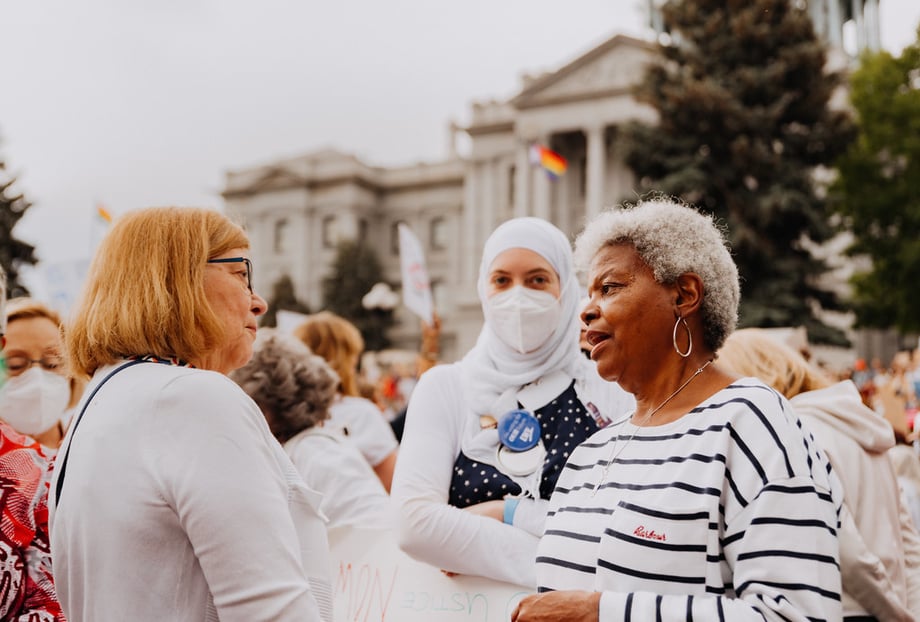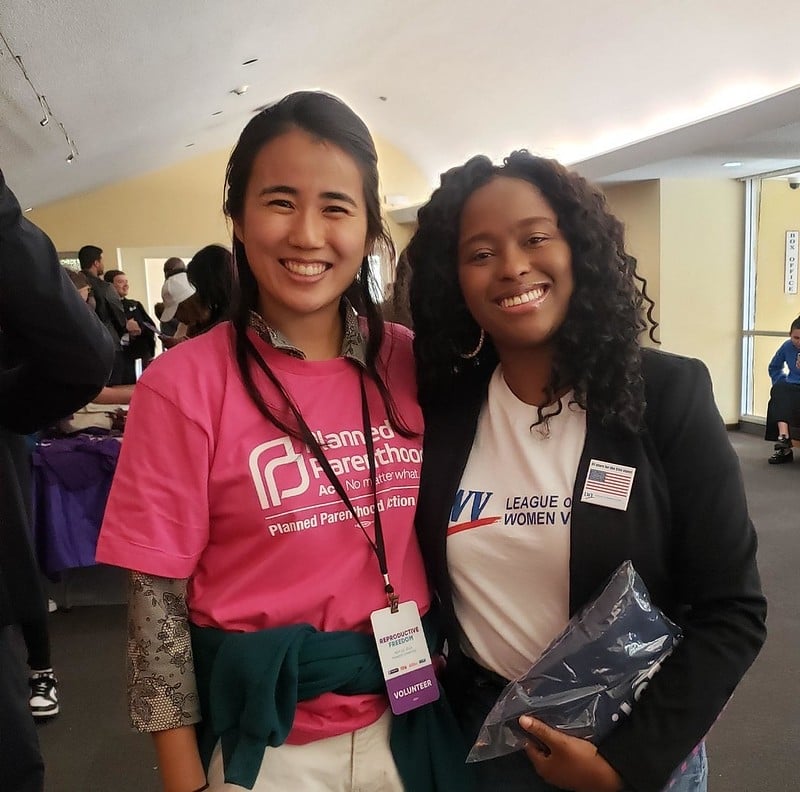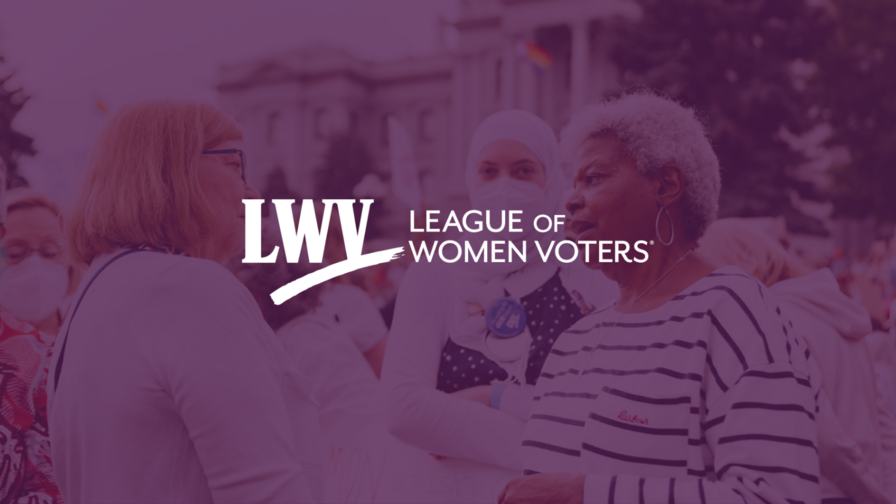One Year After Dobbs: The Medical Impact of Anti-Abortion Laws
One year ago today, the US Supreme Court took away our right to bodily autonomy.
The ruling in Dobbs vs. Jackson Women’s Health Organization will go down in history as one of the most impactful decisions in our nation’s history. As a former gynecologic oncologist, I know firsthand how this will impact not only the billions of Americans who can become pregnant, but also their families, communities, and nation.
Reflecting on all of this, I decided to write a three-part blog series about the impact of Dobbs and other anti-abortion legislation. This first part will focus on the physiological and medical ramifications of the ruling. Upcoming posts will focus on its socioemotional impact and how it’s tied to the fight for voting rights.
Abortion is More Medically Complex than Anti-Abortion Laws Suggest
I practiced gynecologic oncology for 35 years after training in Ob-Gyn (obstetrics and gynecology) at the University of Iowa and Gynecologic Oncology at the MD Anderson Cancer Institute. Not only could I work directly with patients, but I also taught students and trained residents in university programs across the Midwest, participated in a dozen international medical missions, and served as the associate medical director of Planned Parenthood of North Central States.

LWV President Dr. Turner at a protest following SCOTUS's decision to overturn Roe v. Wade
These experiences showed me firsthand how abortion is much more nuanced than our society acknowledges. Many politicians like reducing it to catchphrases and talking points, but doing so is simply inaccurate.
To start, we tend to say abortion is sought only in situations where people choose to end pregnancies because they do not want a child. Rarely do we stop to understand the reason this choice is being made and the fact that many women who have chosen to do so have the desire to have children in the future. Many people who undergo abortion care want very deeply to have that pregnancy. Yet, in cases where a pregnancy is non-viable or life-threatening to the pregnant person, abortions may be necessary.
This can occur when someone begins miscarrying and requires care that is identical to what we’d consider an abortion by choice. At least 10% of pregnancies end in miscarriage (and those are just the ones we know about). This is a situation every pregnant person must consider. Without immediate, appropriate care, many women could — and have — died from the inability to find safe and reliable care.
It can also occur when the fetus has already died in uteri (intrauterine fetal demise) or has a condition such as a congenital defect or other disorders that would make it impossible for the fetus to survive outside the womb. In these instances, think of how painful it would be to carry and give birth to a baby you know will not survive. Moreover, continuing that pregnancy could also become life-threatening to the pregnant person. Can you imagine putting yourself or a loved one through that experience?
And, of course, there are situations where pregnancy threatens the life of the person giving birth. As a doctor, I swore an oath to do no harm. I would be breaking that oath by forcing a client to go through with a pregnancy that would likely end in their death.
Dobbs and Anti-Abortion Laws’ Impact from a Physiological Perspective
Pregnancy and birth both have enormous physiological impacts.
Most of us are familiar with certain effects of pregnancy, such as:
- Nausea and heartburn;
- Increased susceptibility to dizziness and fainting;
- Muscular pain;
- Blurry vision;
- Increase susceptibility to UTIs and yeast infections;
- Fluid retention and weight gain
- Difficulty sleeping; and
- An increased need for food and water.
In addition to the many shifts it undergoes during pregnancy, the human body is often impacted by long-term changes such as:
- Tooth loss;
- Increased risk of diabetes;
- Hemorrhoids and varicose veins;
- Changes in body shape and size;
- Dark patches and/or stretch marks on the skin,
- Decreased sex drive; and
- Increased risk of incontinence and bladder control issues.
Then there is the process of birth; whether done vaginally or through a c-section, birth is often an incredibly intense experience in which the body can take at least six weeks to fully recover from.

As you can see, the physiological impact of pregnancy and birth cannot be taken lightly. We must always consider these and other life-changing medical factors regarding reproductive experiences.
Despite these powerful medical factors, most politicians legislating laws restricting reproductive rights are, to use a phrase I've heard, “practicing medicine without a license.” Because many of these politicians are not medical professionals, they are making decisions without expertise in the subject and without the ethical obligation that medical professionals must do no harm and center patients in their care.
Chances are, these politicians have never worked with scared teenagers who are learning that they are about to undergo nine months that will physically, socially, and psychologically change their lives forever. They have never seen a person who desperately wants a child cry in their office because they know they lack the resources or support to care for that child properly. They have never encountered someone experiencing a miscarriage and chose to either ease their suffering or tell them they have to go home and potentially bleed to death because of anti-abortion laws. And finally, they have never felt the pain of telling a person who was a victim of rape or incest they are legally being forced to carry that pregnancy to term.
Threats to Abortion Medication
I also doubt many of those politicians are as horrified as practitioners are not only by the impact of anti-abortion laws but also by their implications for all types of care.
Stay Updated
Get updates on our efforts to empower women and all voters nationwide.
Questions around the legality of the drug mifepristone, which is often used in cases of abortion and early pregnancy loss, could have wide-reaching effects beyond reproductive health care. Because the case would invalidate the Food and Drug Administration’s (FDA) approval of the drug, all other drugs approved by the FDA, from diabetes medication to cancer treatment, could be called into question.
Thankfully, the Biden administration has pledged to protect the FDA’s legitimacy. Still, this case will likely end up before SCOTUS.
Our Bodies, Our Choice
Looking back on my own career, I wonder how these decisions will affect reproductive health care as a whole. My friends and colleagues who chose to specialize in Ob-Gyn did so because they wanted to provide supportive, life-saving (and life-bringing) care to their communities. Would we all have done so if we had known that our own government would prevent us from providing the care we are trained to do? How many physicians or future physicians are seeing the tragic reality of limiting reproductive care in their area and are deciding to leave or not to pursue gynecology — a reality that involves turning away people in their most physically and psychologically vulnerable states?
I also think of the patients I have been privileged to work with. I remember one couple who came to my office and dreamed of having and raising a child together. They had recently conceived a child, but devastatingly, we had uncovered medical complications that would make the pregnancy non-viable.
The couple sat together, quietly discussing their options. They knew that no matter what they determined in this impossible situation, we would help them. Ultimately, with heavy hearts, they chose to end the pregnancy.
It was a heartbreaking moment, but one thing went how it was supposed to: the medical team let them make the decision and then supported them through it. No politician swooped in to tell them how to feel or act in one of the most challenging moments of their lives. They were treated with humanity and dignity.
I hope for a world where we can once again leave these choices to the people who experience them firsthand rather than unaffected, calculating politicians. It should not matter what your age, zip code, political or religious beliefs, or reason for seeking abortion care are — it should be your choice.
I have to believe we can build that world together. I hope for a world where we can once again leave these choices to the people who experience them firsthand rather than politicians.
The Latest from the League
LWVUS President Dr. Deborah Turner issued the following statement after the Supreme Court issued a stay of a lower court decision that limited access to the abortion drug mifepristone while the issue is heard on appeal.
There is only one way we can ensure that the promise of democracy is kept: by fervently participating in our nation’s political processes, ensuring our voices are heard.
Last year’s SCOTUS decision repealing the right to abortion continues to affect millions of people nationwide. Yet while most of us are familiar with its impact on family planning, I wonder if we all understand the full repercussions on every aspect of our lives?
Sign Up For Email
Keep up with the League. Receive emails to your inbox!
Donate to support our work
to empower voters and defend democracy.






